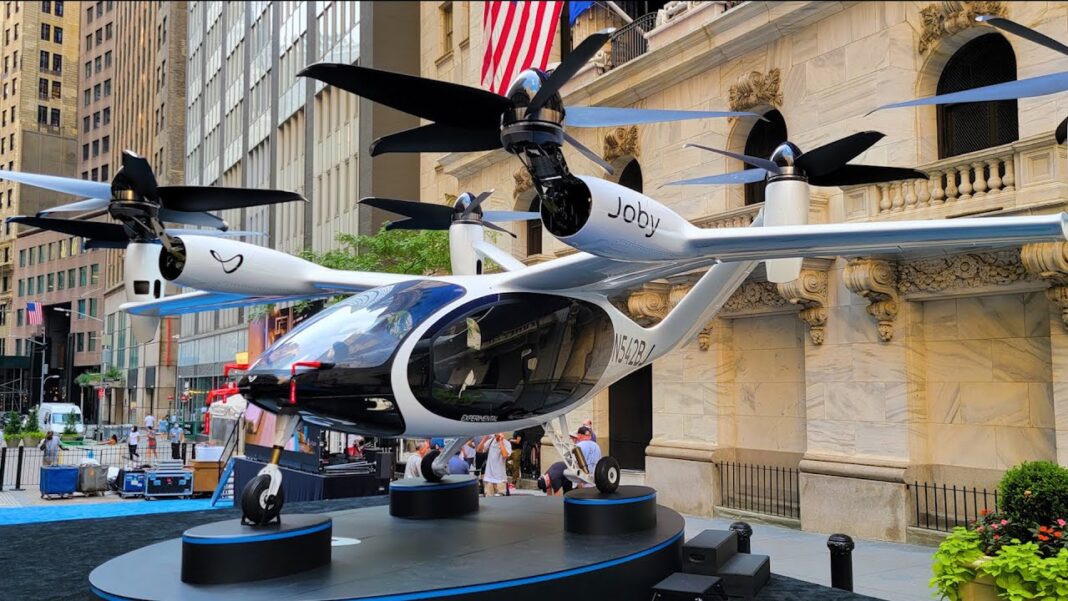|
Getting your Trinity Audio player ready...
|
Is 2023 the Year that We Commute in Electric Air Taxis?
Edited by: TJVNews.com
The year 2023 holds great significance for the pioneers of electric vertical take-off and landing (evtol) aircraft, more commonly known as flying taxis. A number of companies are aiming to secure the necessary certification this year, marking a major milestone in the development of these futuristic vehicles and opening the door to the commencement of commercial production and passenger services.
Air taxis, typically designed to carry fewer than six passengers, utilize multiple small rotors for vertical take-off and landing, similar to hovering drones. With advanced software controlling the rotors, they offer a more user-friendly flying experience compared to helicopters and are capable of autonomous flight. The presence of multiple rotors also enhances safety, as the aircraft can continue to fly even if one or more rotors fail.
Various designs incorporate additional rotors at the rear to facilitate horizontal flight. Alternatively, companies like Joby Aviation have developed aircraft with tilting rotors that act as propellers, complemented by small wings to generate lift. This innovative configuration optimizes battery usage and increases the aircraft’s range.
Certifying these revolutionary flying machines has posed a challenge for regulators. However, concerted efforts have been made to collaborate with developers and establish safety standards. The certification process involves multiple stages, including obtaining “type” approval to verify the airworthiness of the new aircraft, certifying production facilities for mass production, and acquiring an airline-style license for carrying fare-paying passengers. Companies are diligently working towards securing these approvals, with piloted operations expected to receive clearance before autonomous flights.
China presents a unique scenario in this regard. EHang, a Chinese company, is collaborating with the country’s aviation administration to conduct flight trials of its two-passenger autonomous vehicle. These trials are likely to involve carrying passengers over tourist spots and delivering parcels. Another Chinese firm, AutoFlight, aims to certify its three-passenger air taxi, initially operated with a pilot, through a series of test flights in Germany. The company believes that obtaining European approval will expedite its entry into other global markets.
Meanwhile, in Germany, Volocopter plans to conduct flight tests of a range of evtols. The company aims to obtain certification for its smallest model, the two-seater VoloCity, in time for the 2024 Olympics in Paris. The goal is to operate shuttle services between airports and the athletes’ village during the event. Other air taxi companies also have ambitions to provide shuttle services in Paris or at the World Expo in Japan, scheduled for 2025.
In addition to the aircraft themselves, companies are also focusing on the development of “vertiports,” which are the small take-off and landing sites for evtols. The establishment of these vertiports will be a crucial aspect of the industry’s growth in 2023.
As this pivotal year unfolds, the race to propel this new industry into the skies will truly begin. The successful certification of these innovative flying taxis will pave the way for a future where urban transportation is revolutionized, offering a faster, more efficient, and environmentally friendly mode of travel.





